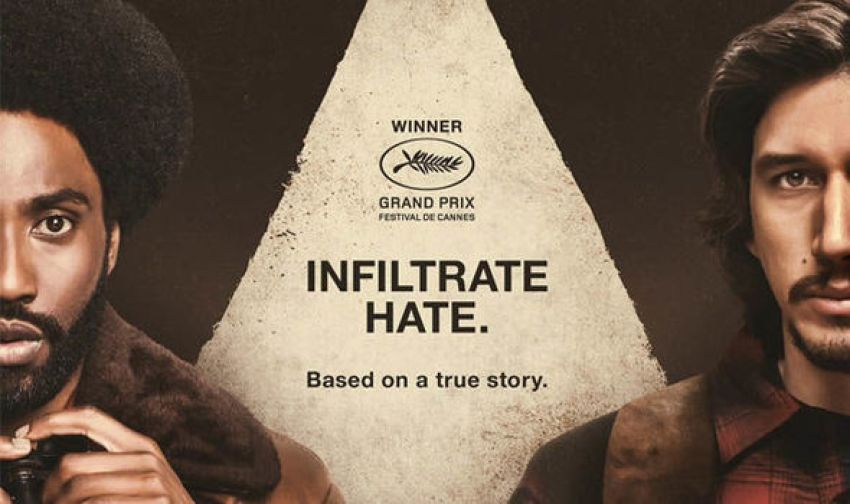
BlacKkKlansman
Directed by Spike Lee
Starring John David Washington, Adam Driver, Laura Harrier & Topher Grace.
2018, in cinemas now
BlacKkKlansman is now one of my all time favourite movies. As a film it works masterfully. There is tension, suspense and comedy. The film is directed by Spike Lee, the black filmmaker whose films always contemplate political issues and in particular racial injustice. The acting is great and the story – based on a true story - is also great. But, there are some interesting political questions that it raises.
The story is about Ron Stallworth (played by John David Washington) who is the first African-American detective to serve in the Colorado Springs Police Department in the early 1970s. He teams up with Flip Zimmerman (Adam Driver of Stars Wars fame), to conduct an undercover investigation of the Klu Klux Klan to expose the extremist hate group, which was trying to make itself more appealing to mainstream America.
Flip, pretends to be Ron, a white, non-Jew, so that he can successfully infiltrate the KKK and is eventually nominated to be head of the local KKK branch. This and the fact that David Duke, former grand wizard of the KKK is fooled by Ron Stallworth, that he is a white supremacist supporter, provides much of the vicarious pleasure. The pleasure of seeing white nationalists and anti-semites being so effectively duped and exposed.
In a notable scene, where the wife of a particularly radical member tries to offer her views and she is put in her place, we are shown the sexism of the KKK.
The film creates tension and suspense from the moment Flip infiltrates the KKK, because they are portrayed as extremely unstable and dangerous. That this is correct is substantiated by the events in Charlottesville, scenes of which Lee appended to the film.
The story is set in the early 70s and includes Black Panthers as some of the heroes in this film. An excellent speech given by a Black Panther leader tackles the question of Blacks internalizing racist ideology, so that Blacks themselves see themselves as less, whether it is about physical appearance or their merit as human beings.
The main Black Panther leaders we see in the film are women. This is an educative aspect because while Black women were leaders of the Black Panthers, the white media often portrayed the Panthers as consisting of angry, violent, black men. By the end of the 1960s over two thirds of the Black Panthers were women. In addition to their radical activities, the Black Panthers carried out a lot of community work including feeding children, making sure they stayed in school and protecting the black neighbourhoods. And while the group struggled with sexism, as did the white Left, women increasingly took on leadership roles and participated at all levels of the organisation.
The deficits of the film, in my opinion include the way the cops are portrayed - very sympathetically, apart from the characters who are blatantly racist. In particular in a scene at the end, the white cops along with Ron and including senior officers are celebrating. They trap the obvious racist cop into admitting that he sexually harasses black women and hounds black men and he is sacked on the spot by his superior. Given that there are so many cops killing unarmed black Americans, that seems a puzzling and mistaken portrayal. Some critics argue that Lee has made this a mainstream movie so that lots of people see it and perhaps that explains the kind representation of cops.
I also found the 'message' in the scene where Harry Belafonte begins the Black power chant counter posed to the KKK chanting white power/white lives matter unnerving. I was not sure what Spike Lee is saying at this point. It could be construed that both groups were militant and aggressive or is he saying that the chant from Blacks comes from a very different place than the racist chant does? Of course you just can’t equate the militancy, or even violence for that matter, of the oppressed with that of the oppressor.
Finally, Ron and Patrice, the leader of a Black Panther chapter argue about whether the system can be changed from the inside – specifically, that the police force can be changed from the inside or not. The ending of the film seems to come down on the side of “inside the police force”. Is it an allegory for debate about working inside the capitalist system instead of smashing it? Or, more hopefully, is it an allegory for Blacks and Whites united against racists will win?
Apart from my political differences on these points, I think Lee has produced a highly engaging and thought provoking film.